Problem-Solving Skills History Worksheets for Ages 4-8
7 filtered results
-
From - To
Discover the engaging "Problem-Solving Skills History Worksheets" designed for kids ages 4-8! These worksheets promote critical thinking by encouraging young learners to explore historical scenarios and challenges faced by individuals in the past. Through interactive activities, children develop essential problem-solving abilities while deepening their understanding of history. Each worksheet is tailored to enhance creativity, critical analysis, and decision-making skills in a fun, age-appropriate manner. Perfect for classroom use or at-home learning, our resources empower young minds to think independently and tackle problems with confidence. Inspire your child’s curiosity about history and their problem-solving potential today!
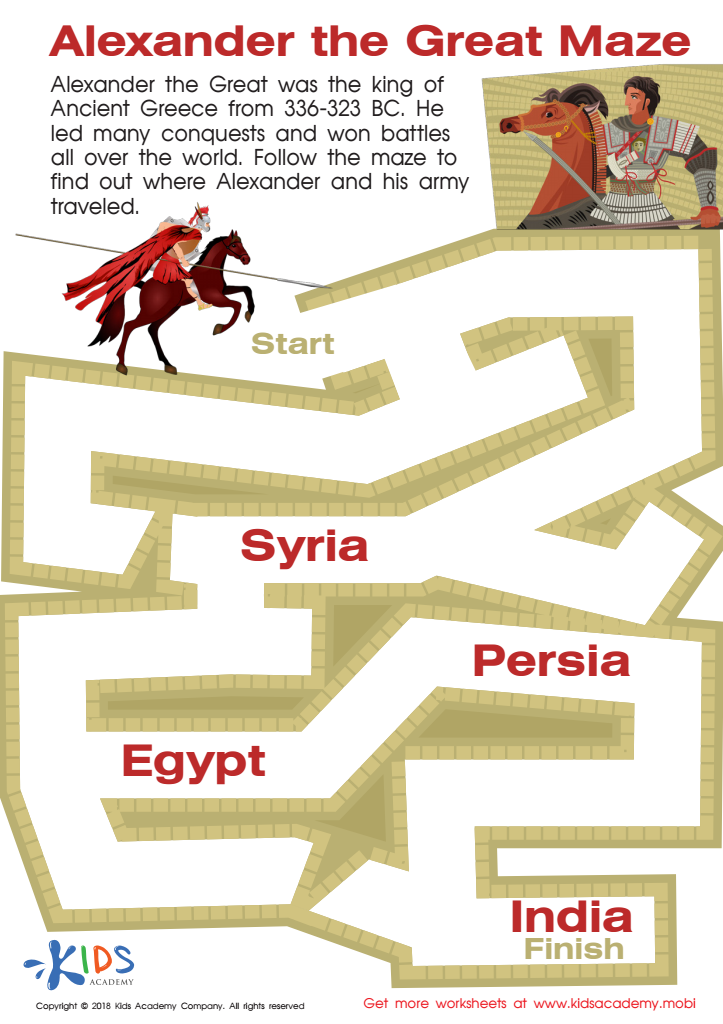

Alexander the Great Maze Worksheet
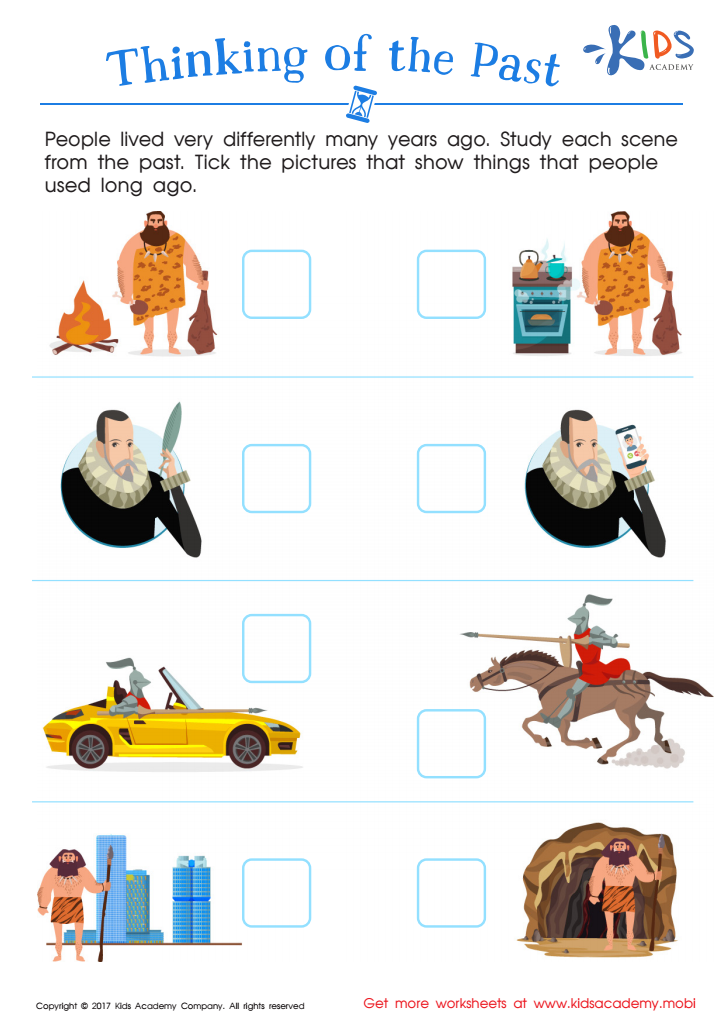

Thinking Past Printable
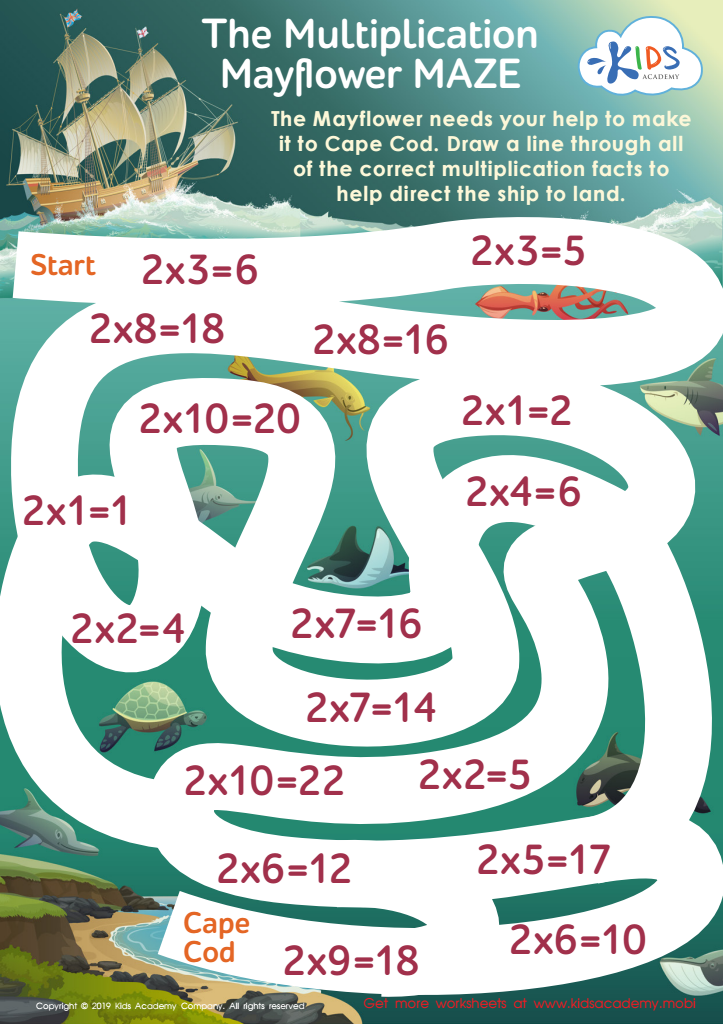

The Multiplication Mayflower Maze Worksheet
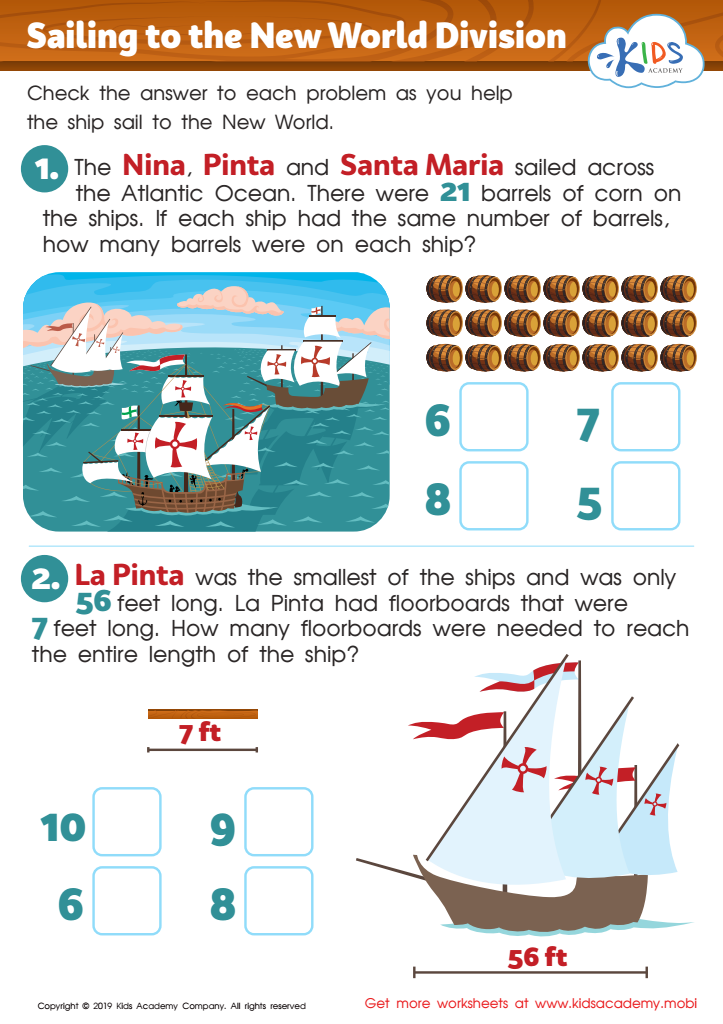

Sailing to the New World Division Worksheet
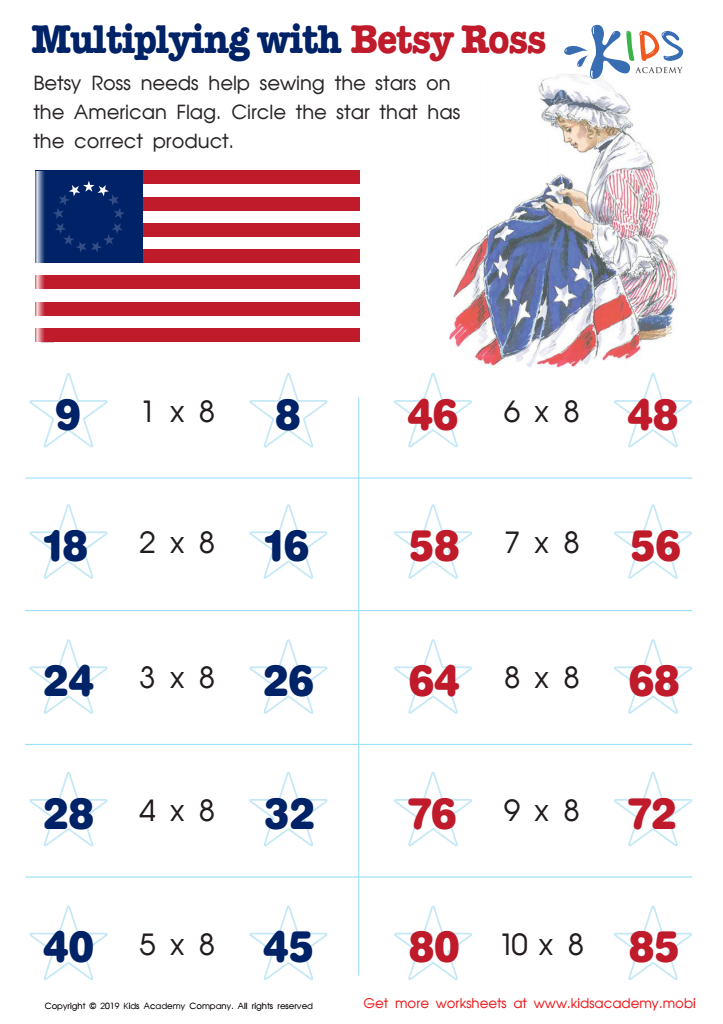

Multiplying with Betsy Ross Worksheet
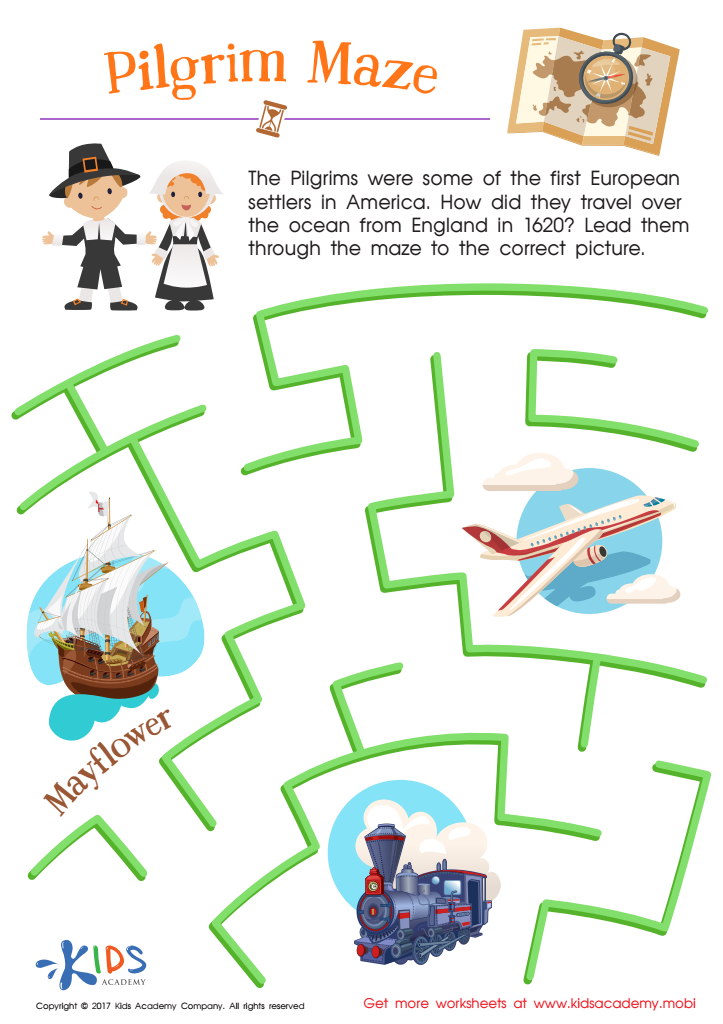

Pilgrim Maze Worksheet
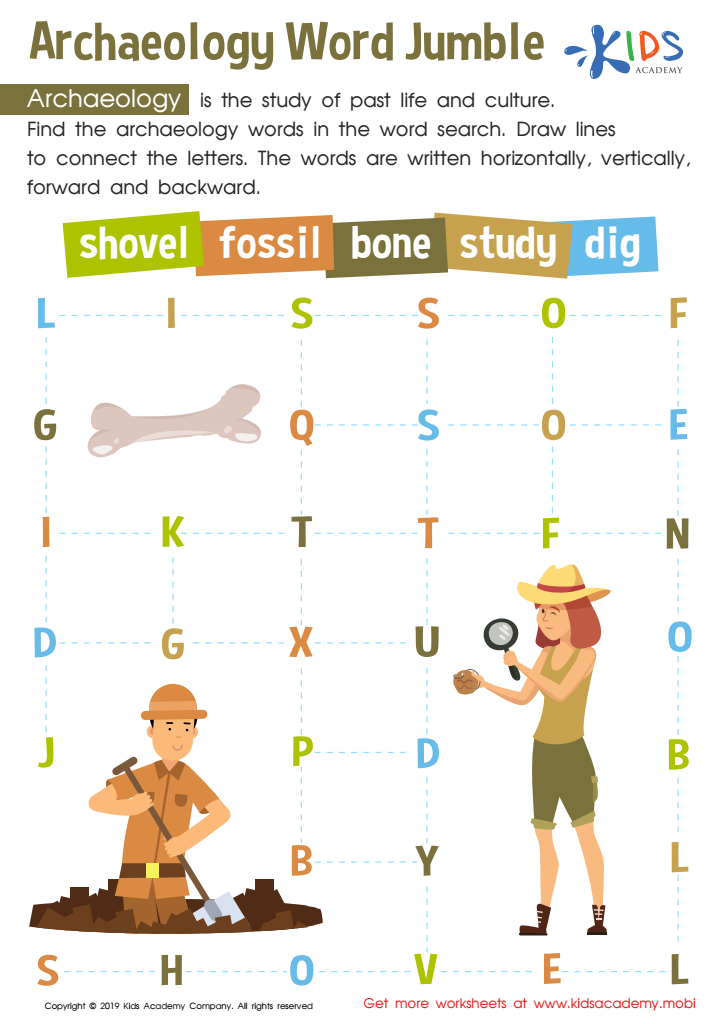

Archaeology Word Jumble Worksheet
Parents and teachers should care deeply about problem-solving skills in children aged 4-8 because these foundational abilities are crucial for lifelong success and resilience. During these formative years, children are naturally curious and eager to explore the world around them. Cultivating effective problem-solving skills in this age group enables them to think critically, make independent decisions, and approach challenges with confidence.
By integrating problem-solving activities into daily activities—such as puzzles, collaborative games, and open-ended questions—adults can foster an environment that promotes creative thinking and perseverance. When children successfully navigate problems, they learn from their mistakes, which builds self-esteem. This process teaches them that challenges are opportunities for growth rather than obstacles.
Moreover, problem-solving skills lay the groundwork for academic achievement. As children advance in school, these skills become essential not just in mathematics and science, but across all subjects. Additionally, emotional intelligence is enhanced as children learn to work cooperatively and communicate effectively with peers. In a rapidly changing world, strong problem-solvers are more adaptable and better prepared to face the complexities of everyday life. Supporting the development of these skills is indispensable for nurturing well-rounded, capable individuals ready to thrive in their future endeavors.
 Assign to My Students
Assign to My Students










.jpg)










